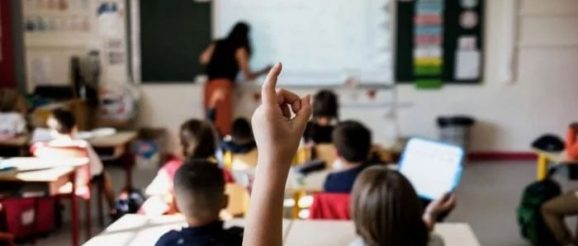Innovation in academia

Pakistan’s academic landscape is at a critical turning point that demands an immediate and comprehensive review. It is clear to me, both as an observer and a participant in this system, that a radical change is necessary to improve education nationwide. Undoubtedly, Pakistan has a long history of academic institutions that have produced outstanding researchers and intellectuals. However, the current situation of academia presents a different image, one tainted by a host of issues that impede advancement and excellence. In the context of Pakistan’s socio-economic development, the relationship – often referred to as university-industry connection or collaboration – bears great significance. Research and innovation are facilitated by university-industry collaboration. The integration of scholarly knowledge with practical industrial perspectives fosters the creation of solutions for real-world issues. This partnership can help Pakistan overcome many obstacles, such as improving agricultural practices and making technological advancements, which will boost the country’s economy. Industries frequently need specific skill sets, and universities can provide academic programmes that cater to these needs. Universities may generate graduates who are better prepared to fulfil the demands of the labour market by coordinating their courses with industry needs. This relationship may benefit Pakistani industries and graduates alike by bridging the skills gap and improving employability. One of the most urgent problems is the out-of-date curricula being taught in many universities in Pakistan. They frequently fall behind the rapid changes in the world, leaving graduates without the skills necessary to succeed in a fast-paced, modern culture. In academic and professional domains, research conferences and seminars are essential because they create a space where knowledge is exchanged, collaborations are formed, and creative ideas are nurtured. The majority of Pakistani faculty in universities neither give seminars nor attend them. In fact, they regard them as useless. They cannot give citations to support their theories or hypotheses. Reading is unnecessary and asking questions at conferences or webinars is merely giving statements without any thought. University owes them lifetime employment and a house – no mobility required for idea development. The focus on memorization and rote learning stifles critical thinking and originality, two skills that are essential for promoting creativity and problem-solving. Differences in the availability of top-notch education exacerbate pre-existing societal divisions. In rural and poor areas, inequality is made worse by a shortage of resources, qualified teachers, and academic building infrastructure. It is impossible to overstate the value of research and development in academia. Unfortunately, Pakistan’s research culture is beset by a lack of funding, resources, and incentives for researchers to undertake meaningful research. This impedes not only academic advancement but also the country’s capacity for technological innovation and advancement. The education system usually places too much emphasis on exam results, which inhibits holistic learning by fostering a competitive environment. A student’s overall improvement is commonly inferred from their grades, which ignores crucial aspects like character development, emotional intelligence, and practical abilities. To address these problems, a total overhaul of the educational system is required. The introduction of relevant and up-to-date curricula, funding of teacher training programmes, reduction of the educational divide between urban and rural regions, and promotion of a research-oriented environment are all significant steps towards revitalizing Pakistani academia. Collaboration between the public and private sectors, academic institutions, and civil society is essential to advancing these reforms. Sufficient funding, alterations to the law, and a change in public opinion that values holistic education are all significant components of this transition. A comprehensive reassessment of Pakistani academics is not only necessary but also vital to the country’s progress. We must welcome change, encourage innovation, and give inclusive, high-quality education priority if we are to reach the nation’s full potential and build a brighter future for coming generations. The writer is a research fellow at the Pakistan Institute of Development Economics (PIDE), Islamabad. She tweets/posts @abida_15 Taxes contribute to social stability through welfare programmes and encourage investment via incentives Bank of America now believes that it is a good time to invest in bonds issued by Pakistan Pricing of both sources of energy is controlled by sovereign, creating distortion, and misalignment of incentives His murder took place at high-end Kohsar Market in Islamabad where Salmaan Taseer had arrived to meet friends in a… Former PM Shahbaz Sharif, former Present Asif Zardari, and PPP Chairmen Bilawal Bhutto during the press conference on… People seen in an inundated street of Jinnah Colony, Latifabad in Hyderabad on August 20, 2022. — APPKarl Marx…
